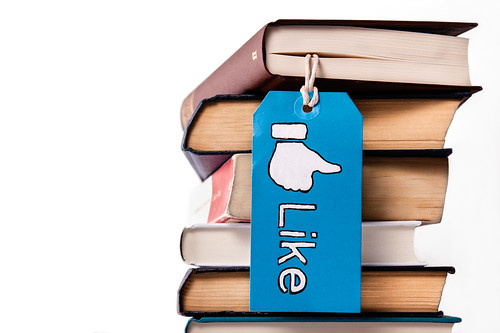I'm thrilled to introduce to you Stephanie Adams, LPC - my very first guest blogger on Private Practice Toolbox. Stephanie's passion for counseling and develop multiple streams of income, like offering online counseling and webinars, and self-publishing her first book are impressive. For all of you shrinks who've been thinking about writing a book, I hope Stephanie's guest posts will encourage you to take action!
Among therapists, "multiple streams of income" is a phrase with buzz. For good reason: though we all love our one-on-one work with clients, it gets nerve-wracking to rely solely on "dollars for hours" income. Those times when a client gets sick - or we do - can mean a major hit to our paycheck.
That's why more and more, smart therapists are looking to diversify their methods of earning income. Self-publishing a book for your main client group is one excellent means of doing just that.
There are two reasons why you should seriously consider the self-publishing route. First, because it brings in an additional stream of revenue from the book itself, and who doesn't want that? The second reason to pursue self-publishing is because writing a book significantly impacts your perceived status as an expert.
Why does it matter if people see you as an expert? The fact is, publishing a book is a symbolic as well as a literal gesture. It tells others that you've put in a lot of work into researching and writing about a subject you care a lot about. People naturally view those who are willing to do that amount of labor to better understand a subject as experts in their own particular field. The increased knowledge, or expertise, you demonstrate about your subject translates into an increased client flow to your main business - your private practice.
Why Self-Publish?
Of course, the reasons above only explain why to publish a book, not why to forgo traditional publishing for self-publishing. That is because the reason is a new one. It's rooted in the current difficulties of the business of book publishing. Fact is, it's getting harder and harder for publishers to break even, let alone make a profit, doing business the way they were before. As a result of the advent of e-books and the success of secondhand bookstores in a poor economy, publishing houses cannot count on the same financial return from book sales as they did previously. Borders has already gone under, other big bookstore chains are now in danger too.
With fewer and fewer people buying physical books at full retail price, traditional publishing companies just can't afford to take the risk on an untried author very often, no matter how great the message you have to share. And those authors that the big guns do take on have a very short window to prove themselves a marketable commodity. But if you're not at that level yet, you will likely be better off in self-publishing. When you self-publish, your income is based on a higher margin of profit per book, not volume of books like at the big houses. Since you cannot (yet) expect to sell a crazy amount of books, self-publishing gives your book a long shelf life to quietly earn a decent amount per book sold.
This is an important distinction that many people miss when thinking about publishing a book for themselves: that with a traditional publisher, you have a limited amount of time in most cases to sell books, or your book will be pulled from bookstore shelves and relegated to last priority with the house. Let me make it clear that book publishers aren't being cruel when they do this. They simply cannot afford to invest energy in a book that isn't selling "enough" according to their needs. If you self-publish with print-on-demand (which I will explain to you how to do very shortly) you do not have to meet some arbitrary deadline. Your book can be available on the Internet as long as you choose to make it so, giving it time to grow an audience and maybe, eventually attract the attention of a publisher who could give you larger circulation, when you're ready for that. It allows you to grow into an author that can request high standards of care from traditional publishing companies, because you will be an author who has shown you can bring in the readers.
To sum up, with a traditional publisher (unless you're a big name) you should expect as a rule less attention, tiny royalties, and a short window of time in which to prove yourself. If you are the publisher, however, you can give yourself the attention and time you need to develop, and earn steady royalties twenty-five to forty times higher than royalties issued by traditional publishing houses.
Publishing Your Book With CreateSpace
While your business decisions are your own, I advocate CreateSpace for self-publishing because I researched over 25 self-publishing services for my book, The Beginning Counselor's Survival Guide: The New Counselor's Guide To Success From Practicum to Licensure before settling on this service. I found that INCLUDING the book contract I was offered from a traditional academic publishing company, CreateSpace was the best deal financially and creatively.
For those of you who don't know what I'm talking about, CreateSpace is the self-publishing wing of the book giant Amazon.com. Though they offer paid self-publishing services, unlike most similar service providers, they don't require writers purchase an entire package, which, frankly, is a usually a tactic to get authors to spend more than they need to spend. CreateSpace also easily gets your book for sale on Amazon.com, which, outside of perhaps your local bookstore, is the first place most of your potential readers will look for your book. With other services, you often have to purchase a package to get your book on Amazon.
CreateSpace offers book publishing print-on-demand, which means no required books for you to buy and no risking your hard-earned savings with a hefty investment. When you need books to hand-sell, you purchase as many books as you like at some of the lowest rates in the industry, and the production fees for books customers order are factored in when CreateSpace quotes a royalty for you. No unhappy surprises.
CreateSpace makes it easy to accomplish the tasks independent author-publishers must take on in order to release their book, such as purchasing an ISBN and formatting the book to industry standards. In addition to the intuitive layout of the program itself and extensive community forums, customer service responds quickly and pleasantly, even if you're not a big-ticket account.
Are there disadvantages? Of course, but they are mostly disadvantages common to all independent publishing ventures. For example, no self-publisher, including CreateSpace, is going to do the work for you to get bookstores to order your books. But their consistently lower prices on services, friendly staff, and general ease of use ranks them pretty high in my book. (No pun intended!)

 photo credit: Jano Fistialli
photo credit: Jano Fistialli
An Even Cheaper Option: Self-Publishing Your E-Book!
Maybe you've been reading this and liking the idea of increasing your expert status and earning a second income, but aren't sure if you want to invest in writing and selling a paperback book. You don't necessarily have to. Another great option to add to your publishing plan or to try in place of publishing a physical book is to publish an e-book!
Again, there are multiple options to help you along this path. Amazon offers Kindle Direct Publishing, which you can do on your own or pay under $100 to have them do for you. The CreateSpace or KDP staff will help you link the Kindle edition of your book to the listing for your physical book upon request so that those who go to Amazon.com to find your book can find buying options for the Kindle as well. The e-book publisher Smashwords also allows you to upload a book for free and pay only a small portion of your earnings for each book sold. Though it doesn't seem to draw a great deal of traffic on its own, Smashwords can be a great tool for file conversion (often the hardest part of preparing an e-book for publication) and setting up affiliate sales of your e-book. (A sub-stream of income, if there is such a word!)
Royalties from e-books are even larger than royalties from print books, as e-books require no printing or shipping costs. (Self-published print book royalties on CreateSpace depend on the way the book is sold, but range from 20-60% of your total list price, while royalties can be 70-80% of the list price for e-books.) As a bonus, when you are the only publisher, you have all claim over the rights. That means you can also sell your e-book as a pdf download directly from your website and keep all the profit to yourself!
If you're already publishing in a physical format, there's no real reason not to add an e-book option as well, as they are often free to put out and increasingly more attractive to readers. As you consider your audience, you may find out also that producing an e-book by itself is the best choice for you. If there's no real demand for a print copy, by all means, stick to just an e-book. This is the theme I want to impress upon you: self-publishing is about YOU taking charge of your business destiny and meeting your clients' needs in a new and creative way. If your plan accomplishes those goals, then you have succeeded at self-publishing.

I hope I'm beginning to interest you in the exciting world of self-publishing for counselors. It's an untapped opportunity for therapists with incredible potential. Of course, before you self-publish, you have to write a book, and that can sound like a scary concept to some of you. Not to worry. Next week, in A Shrink's Guide To Self-Publishing, Part II, I will explain to you how your role as a counselor has already prepared you for authorship, and share some simple tips to get you started on writing your book and sharing it with others.
Stephanie Ann Adams, MA, LPC is the co-author of "The Beginning Counselor's Survival Guide: The New Counselor's Plan for Success from Practicum to Licensure" (available now in paperback and e-book) and the owner of Beginnings Counseling & Consulting, where she provides counselor innovation consulting and life counseling for emerging adults.


As healers, we genuinely like to do our work. Guiding clients through the therapy process and seeing them make progress is why we do what we do. But if you're in private practice, you know there's a lot going on in the back end and that it's crucial to run an efficient and organized business.